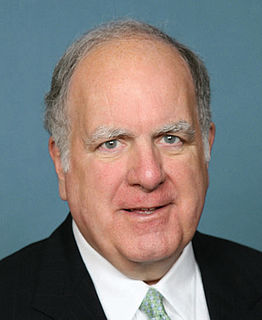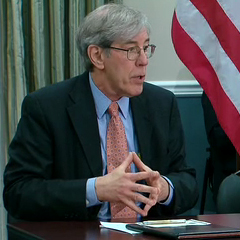Top 237 Surplus Quotes & Sayings - Page 4
Explore popular Surplus quotes.
Last updated on April 17, 2025.
Much of the pressure contemporary parents feel with respect to dressing children in designer clothes, teaching young children academics, and giving them instruction in sports derives directly from our need to use our children to impress others with our economic surplus. We find "good" rather than real reasons for letting our children go along with the crowd.
Hannah Arendt in her study of totalitarianism borrowed from Immanuel Kant the concept of radical evil, of evil that's so evil that in the end it destroys itself, it's so committed to evil and it's so committed to hatred and cruelty that it becomes suicidal. My definition of it is the surplus value that's generated by totalitarianism. It means you do more violence, more cruelty than you absolutely have to to stay in power.
The realization that I came to is that each citizen for himself or herself understands the economics, which is, "I better make more than I spend and I better put something aside for a rainy day, and I want to get a good idea about what to do with the surplus so that perhaps it can grow while I'm sleeping." And that that's capitalism. Everybody practices it, but half of the country - those on the left - deny that it's true.
Mitt Romney has a history of being a great job creator. Secondly, he was a great governor. He went from billions of dollars in the hole when he became governor to billions of dollars in surplus when he left. And he went from the loss of tens of thousands jobs when he became governor to the creation of 40,000 new jobs when he left office.
American voters should understand that Congress will always find a way to spend every last dollar sent to Washington. Remember, politicians get votes by promising everything to everyone, always at the expense of some other invisible taxpayers. ...The federal government cannot maintain a budget surplus any more than an alcoholic can leave a fresh bottle of whiskey untouched in the cupboard.
The noblest relationship is marriage, that is, love. Its nobility resides in its altruism, the desire to serve another beyond all the pleasures of the relationship; and in its refusal ever to regard the other as a thing, an object, a utilizability. Sex is an exchange of pleasures, of needs; love is a giving without return. It is this giving without return, this helping without reward, this surplus of pure good, that identifies the uniqueness of man as well as the true nature of the true marriage. This is the quintessence the great alchemy of sex is for.
[The ruling elites] know who their enemies are, and their enemies are the people, the people at home and the people abroad. Their enemies are anybody who wants more social justice, anybody who wants to use the surplus value of society for social needs rather than for individual class greed, that's their enemy.
I want to reform the tax code so that it's simple, fair, and asks the wealthiest households to pay higher taxes on incomes over $250,000 - the same rate we had when Bill Clinton was president; the same rate we had when our economy created nearly 23 million new jobs, the biggest surplus in history, and a lot of millionaires to boot.
We're not giving what we're called to give, unless that giving affects how we live - affects what we put on our plate and where we make our home and hang our hat and what kind of threads we've got to have on our back. Surplus Giving is the leftover you can afford to give; Sacrificial Giving is the love gift that changes how you live - because the love of Christ has changed you. God doesn't want your leftovers. God wants your love overtures, your first-overs, because He is your first love.
A little rain, a little blood. Black fingernails in August; and going berserk, going bananas. As if entrapped in a tropical heatwave, with dozens of whirlwinds swirling in one’s mind, one thinks of a way out, or a way in: out of the scorching bosom of a volcano, and in – into the centre of a raging hurricane. And tracing the labyrinthine ways of your mind, the haphazard vagaries of your thoughts at ease, the odds and ends of your mental surplus you carelessly throw at the world, one wants to be at a loss, in a maze; amazed, and amazingly unabashed.
Money is indispensable to a long-circuit heavy load energy system. It must be used when a sufficient surplus is being produced to allow a margin for exchange, and cost of transport, over a considerable distance. Money represents a storage battery when idle, and a generalized mode of the conversion of energy when it is in motion, with a function of equating time and space.
Though the man-apes often fought and wrestled one another, their disputes very seldom resulted in serious injuries. Having no claws or fighting canine teeth, and being well protected by hair, they could not inflict much harm on one another. In any event, they had little surplus energy for such unproductive behavior; snarling and threatening was a much more efficient way of asserting their points of view.
People who truly have control over time always have some in their pocket to give to someone in need. A sense of priorities drives their use of time and it can shift away from the ordinary work that’s easy to justify, in favor of the more ethereal, deeper things that are harder to justify. They protect their time from trivia and idiocy; these people are time rich. They provide themselves with a surplus of time. They might seem to idle, or relax more often than the rest, but that just might be a sign of their mastery, not their incompetence.
During a time of surplus, a time of peace before 2001, it was much easier to try and find middle ground. We were running surpluses. But during a time when we're careening into bankruptcy and failing miserably on our foreign policy it's just not the same old "find consensus, go along to get along, be pragmatic, come together" place that it was. I think that some very hard decisions and very hard choices have to be made. They won't be popular, but they're necessary.
Whenever the debate moves on to hard numbers - our deficit with Europe, our surplus with the rest of the world, our Brussels budget contributions, the tiny part of our economy dependent on sales to the EU, the vast part subjected to EU regulation - Euro-enthusiasts quickly shift their ground and start harrumphing about influence.
Fashion is the most intense expression of the phenomenon of neomania, which has grown ever since the birth of capitalism. Neomania assumes that purchasing the new is the same as acquiring value... If the purchase of a new garment coincides with the wearing out of an old one, then obviously there is no fashion. If a garment is worn beyond the moment of its natural replacement, there is pauperization. Fashion flourishes on surplus, when someone buys more than he or she needs.
So I'm not proposing anything radical. I just believe that anybody making over $250,000 a year should go back to the income tax rates we were paying under Bill Clinton. Back when our economy created nearly 23 million new jobs, the biggest budget surplus in history, and plenty of millionaires to boot. ... At the same time, most people agree that we should not raise taxes on middle-class families or small businesses -- not when so many folks are just trying to get by.
Because of the oil-and-water relationship governments have cultivated between ethics and political economy, speaking in plain terms - spelling it out as it is - as become foreign to the public. So here goes: When government sports a surplus, this implies that the political pickpockets have stolen more funds than they can possibly dream of spending. The property is not theirs to keep! Conversely, when deficits are reported, this means that the kleptomaniacs have not been able to steal sufficient funds to cover their profligacy.
U.S. capital formation, which has been pretty high in the '90s and very high in the late 1990s, is what is being financed by the savings of the rest of the world, generally poorer than ourselves, because our deficit on current account, chronic deficit, is their surplus, and they have been willingly bringing that to the American market.
We in Germany could, for example, lower taxes. And who is against that? The Social Democrats.
We could also mobilize more private investments for public infrastructure projects liken the construction of highways. But the Social Democrats also reject this, even though they are at times similar to others abroad in their carping about the surplus. Incidentally, some of the consequences of the good economic situation are strong increases in wages, rising pensions and a strong labor market.
When people who earn more than the average have their 'surplus', or the greater part of it, seized from them in taxes, and when people who earn less than average have the deficiency , or the greater part of it, turned over to them in hand-outs and doles, the production of all must sharply decline; for the energetic and able who lose their incentive to produce more than the average, and the slothful and unskilled lose their incentive to improve their condition.
Socialism is a wonderful idea. It is only as a reality that it has been disastrous. Among people of every race, color, and creed, all around the world, socialism has led to hunger in countries that used to have surplus food to export.... Nevertheless, for many of those who deal primarily in ideas, socialism remains an attractive idea -- in fact, seductive. Its every failure is explained away as due to the inadequacies of particular leaders.
The hippie is the scion of surplus value. The dropout can only claim sanctity in a society which offers something to be dropped out of--career, ambition, conspicuous consumption. The effects of hippie sanctimony can only be felt in the context of others who plunder his lifestyle for what they find good or profitable, a process known as rip-off by the hippie, who will not see how savagely he has pillaged intricate and demanding civilizations for his own parodic lifestyle.
Economists may not know much. But we know one thing very well: how to produce surpluses and shortages. Do you want a surplus? Have the government legislate a minimum price that is above the price that would otherwise prevail. That is what we have done at one time or another to produce surpluses of wheat, of sugar, of butter, of many other commodities. Do you want a shortage? Have the government legislate a maximum price that is below the price that would otherwise prevail.
A canteen I remember vividly, and maybe one other thing, I can't remember. And I knew then that he had bought them in an army surplus store that day and he wanted to maybe enhance himself in my eyes, and say, "Well, yes, I have been in the army." Or [he] simply just didn't want to disappoint me. It could have been one or the other. But I knew that he had lied to me. And this filled me with a tremendous sort of anger towards him. At the same time, knowing he was trying to please me, so feeling good about him.
The prudent, penniless beginner in the world, labors for wages awhile, saves a surplus with which to buy tools or land, for himself; then labors on his own account another while, and at length hires another new beginner to help him. This, say its advocates, is free labor-the just and generous, and prosperous system, which opens the way for all-gives hope to all, and energy, and progress, and improvement of condition to all.
China's accumulation of reserves is a result of the IMF's mismanagement of the Asian financial crisis a decade or so ago. If countries know they can't rely on the IMF to help them, their best defense is their own reserve cushion. In a time of spreading global recession, too much emphasis on savings in surplus countries like China can impede prospects for global growth.
Let us not pray to be sheltered from dangers but to be fearless when facing them." "Everything comes to us that belongs to us if we create the capacity to receive it." "Life is perpetually creative because it contains in itself that surplus which ever overflows the boundaries of the immediate time and space, restlessly pursuing its adventure of expression in the varied forms of self-realization." "The highest education is that which does not merely give us information but makes our life in harmony with all existence.
We insist on producing a farm surplus, but think the government should find a profitable market for it. We overindulge in speculation, but ask the government to prevent panics. Now the only way to hold the government entirely responsible for conditions is to give up our liberty for a dictatorship. If we continue the more reasonable practice of managing our own affairs we must bear the burdens of our own mistakes. A free people cannot shift their responsibility for them to the government. Self-government means self-reliance.
That means we get other countries to play by our rules. You add up all the countries that we have trade agreements with, we have a surplus with them. You add up the countries we do not have a trade agreement with, that`s where a massive trade deficit comes from. So our goal is to get free trade agreements, and that means we get other countries to play and live by our rules so we can level the playing field.
Large department stores, with their luxuriant abundance of canned goods, foods, and clothing, are like the primary landscape and the geometrical locus of affluence. Streets with overcrowded and glittering store windowsthe displays of delicacies, and all the scenes of alimentary and vestimentary festivity, stimulate a magical salivation. Accumulation is more than the sum of its products: the conspicuousness of surplus, the final and magical negation of scarcitymimic a new-found nature of prodigious fecundity.
The second reason why we haven't observed the growing gap is that our historical and social science analyses have concentrated on what has been happening within the 'middle classes' - that is, to that ten to fifteen percent of the population of the world-economy who consumed more surplus than they themselves produced. Within this sector there really has been a relatively dramatic flattening of the curve between the very top (less than one percent of the total population) and the truly 'middle' segments, or cadres (the rest of the ten to fifteen percent).
Government can only do two things: It can beat people up and kill them. Or it can threaten to do so. When it seems to be doing something else - for example, handing out money or, say, surplus cheese - what's actually going on is that something has been taken away from one set of individuals by deadly force or the threat of deadly force, a hefty middleman's fee deducted, and whatever is left thrown to peasants delighted to receive stolen goods.
While it is undeniable that many have been driven to immorality and crime by the need to survive, it is equally evident that the possession of a significant surplus of material goods has never been a guarantee against covetousness, rapacity and the infinite variety of vice and pain which spring from such passions. Indeed, it could be argued that the unrelenting compulsion of those who already have much to acquire even more has generated greater injustice, immorality and wretchedness than the cumulative effect of the struggles of the severely underprivileged to better their lot.
Winston worked in the RECORDS DEPARTMENT (a single branch of the Ministry of Truth) editing and writing for The Times. He dictated into a machine called a Speakwrite. Winston would receive articles or news-items which for one reason or another it was thought necessary to alter, or, in Newspeak, rectify. If, for example, the Ministry of Plenty forecast a surplus, and in reality the result was grossly less, Winston's job was to change previous versions so the old version would agree with the new one.
That night Demosthenes published a scathing denunciation of the population limitation laws. People should be allowed to have as many children as they like, and the surplus population should be sent to other worlds, to spread mankind so far across the galaxy that no disaster, no invasion could ever threaten the human race with annihilation. "The most noble title any child can have," Demosthenes wrote, "is Third.
Riches, power and fame last only for a few years! Why do people cling so desperately to these transitory things? Why can't people who have more than they need for themselves give that surplus to their fellow citizens? Why should some people have such a hard time during their few years on this earth?
Of all the art forms, poetry is the most economical. It is the one which is the most secret, which requires the least physical labor, the least material, and the one which can be done between shifts, in the hospital pantry, on the subway, and on scraps of surplus paper. ... poetry has been the major voice of poor, working class, and Colored women. A room of one's own may be a necessity for writing prose, but so are reams of paper, a typewriter, and plenty of time.
Sufficient for the day is all that we can enjoy. We cannot eat or drink or wear more than the day's supply of food and raiment; the surplus gives us the care of storing it, and the anxiety of watching against a thief. One staff aids a traveller, but a bundle of staves is a heavy burden. Enough is not only as good as a feast, but is all that the greatest glutton can truly enjoy. This is all that we should expect; a craving for more than this is ungrateful. When our Father does not give us more, we should be content with his daily allowance.
My object, having a surplus to deal with, is to consider how I can deal with it to the greatest advantage to the consumer - how, without inflicting any injury on Canada, I can secure the most substantial benefit to this country, to the manufacturing, to the commercial, and to the agricultural interests. The real way in which we can benefit the working and manufacturing classes is, unquestionably, by removing the burden that presses on the springs of manufactures and commerce.
I still say exactly what my original opinion is. Do you borrow money from China to send it to anyone? Out of your surplus, you can help your allies, and Israel is a great ally. And this is no particular animus of Israel, but what I will say, and I will say over and over again, we cannot give away money we don't have.
The man of wealth [should] consider all surplus revenues which come to him simply as trust funds, which he is called upon to administer to produce the most beneficial results for the community - the man of wealth thus becoming the mere trustee and agent for his poorer brethren, bringing to their service his superior wisdom, experience and ability to administer, doing for them better than that they would or could do for themselves.
The dog that buried the bone which even a canine appetite could not manage, the squirrel that gathered nuts for a later feast, the bees that filled the comb with honey, the ants that laid up stores for a rainy day - these were among the first creators of civilization. It was they....who taught our ancestors the art of providing for tomorrow out of the surplus of today, or of preparing for winter in summer's time of plenty.
It is a paradoxical truth that tax rates are too high and tax revenues are too low and the soundest way to raise the revenues in the long run is to cut the rates now Cutting taxes now is not to incur a budget deficit, but to achieve the more prosperous, expanding economy which can bring a budget surplus.
Institutionalized rejection of differences is an absolute necessity in a profit economy which needs outsiders as surplus people. As members of such an economy, we have all been programmed to respond to the human differences between us with fear and loathing and to handle that difference in one of three ways: ignore it, and if that is not possible, copy it if we think it is dominant, or destroy it if we think it is subordinate.
This priesthood became a closed group, able to control enormous wealth and incomes, and concerned very largely with the study of the solar and astronomical periodicities on which there influence was originally based. With the surplus thus created, the priesthood was able to command human labor in huge amounts and to direct this labor from the simple tillage of the peasant peoples to the diversified and specialized activities that constitute civilized living.
Leisure, itself the creation of wealth, is incessantly engaged in transmuting wealth into beauty by secreting the surplus energy which flowers in great architecture, great painting and great literature. Only in the atmosphere thus engendered floats that impalpable dust of ideas which is the real culture. A colony of ants or bees will never create a Parthenon.



















































